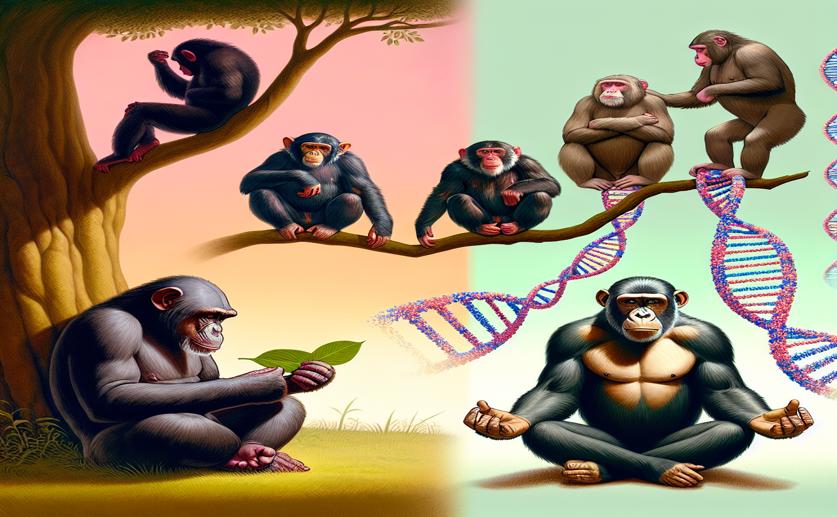
How Primates Deal With Stress: Behavior, Body, and Genes
Jenn Hoskins
17th February, 2024

Image Source: Natural Science News, 2024
References
Main Study
1) Behavioral, physiological, and genetic drivers of coping in a non-human primate.
Published 16th February, 2024
https://doi.org/10.1016/j.isci.2024.108890



 8th February, 2024 | David Palenski
8th February, 2024 | David Palenski